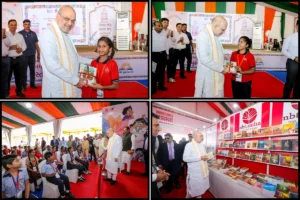
In 2013, at the heart of an entrenched territory infested with criminal activities, booze joints, drugs cartels, prostitution, a women team from the Community Awareness and Development (CAD) Foundation ventured with a mission- to provide a gender-sensitive service to women drug users.
At that point of time, Westyard Colony, Dimapur (also known as railway colony) was notorious as an area synonymous to crime, a thugs haven and once regarded as a no-go zone. This was where drug users hung out, alcoholics convened for drinking bouts, pickpockets counted their day’s snatch and ‘normal’ people averted to venture at all cost.
But this was also a ‘hotspot’ to develop contact and interact with drug users, who mostly remain invincible from the mainstream population, and to reach out to them for intervention and transformative programmes.
For Lochumlo Humtsoe, Programme Manager and her team, assigned at the Female Injecting Drug User (FIDU) centre at the Westyard Colony has been a roller-coaster ride from the day-one itself marked by threats and intimidation and life threatening situations.
“Here we were, a bunch of women, surrounded by booze joints all around, thugs abound, users injecting drugs in the open, brawls everywhere. There were times when people after getting intoxicated were sleeping in the corridor of our office. It was very very scary,” Lochumlo recalls.
With women drug users emerging as significant group among the drug using community in Dimapur, but largely remaining a hidden population, a gender-sensitive, drug prevention and care responses service for them was an imperative.
“People using drugs are stigmatized and face high levels of backlash from the society. Women drug users, however, are doubly stigmatized and discriminated, because of their drug use and because of their gender,” Lochumlo points out.
To battle this, the CAD Foundation- FIDU TI (Targeted Intervention) was established in July 1, 2013 offering OST (Opioid Substitution Therapy) intervention services, HIV testing, counselling, needle-syringe exchange programme. Besides, advocacy campaigns aimed to educate the community about their rights, empower the marginalized and entrepreneurship programs for the unemployed were also taken up.
Nearing 10 years since its establishment-and through countless engagements and grassroots initiatives, peer education, building trust and working towards allaying skepticism and resistance from the community, Lochumlo feels they have forged a genuine connection with the drug using community as well as the residents here.
Over the course of years, Lochumlo has been called names: labeled a ‘pimp’ because all staff were women, clients coming in were women, had gun pointed at her and threatened, looked at with jaundiced eyes, gone to morgue to identify bodies of her clients, police station visits to resolve clients’ cases etc and has yet remained indefatigable.
Asu, outreach worker with FIDU since 2014 recalls her feeling of doom when she saw the colony where the office was set up for the first time. “Even as a Dimapur citizen, I had never seen Westyard colony, and when I saw it I wondered why office was set up here. And then I realised, this was a hotspot for drug users.”
Also speaking on the challenges, Asu says it was tasking and needed huge patience to convince women drug users already stigmatized by the society to join their OST/behavioural change programmes- requiring months or even years for them to acquiesce.
Earlier, NGOs working with drug user community were very vulnerable, she also reveals. “We had no security. At that point of time, many in the Police department were not aware of the working of an NGO or the OST programs we were managing for drug users, for which at times, we were also a target. However, over the years, with advocacy, relationships have changed, now police comes to us in times of need,” Asu says.
Overtime, the commitment of the FIDU team has seen remarkable transformation taking place among the women drug user community. Former victims of drug addictions have emerged as spokesperson inspiring their peers and the young generation to free from the shackles of despair. Since its establishment, more than 500 women drug users have registered for OST and intervention. At present, the centre has 61 OST clients and 168 registered members.
Christina (name changed), a recovered drug user swears she would have been dead had not the FIDU team rescued her. “I was on the brink of death when they found me, treated me and here I am. They go to the darkest corner of the community where the police, the GBs or the church cannot venture and that is how they found me.”
The recovered drug user is now a full time peer educator. Ostracized by her mother, a church worker, and then the colony she took refuge in, Christina has come a long way-giving up her children to relatives, years of sleeping in the open skies at the railway station and other haunts, committing petty crimes to sustain her addiction to where she is now.
“I have hurt a lot of people, and a lot of people have hurt me too. For me, I seek redemption for my past by trying to help those like me in whatever capacity I can by telling my story and sharing experiences,” she says. Christina is a recipient of a state award for being an outstanding peer-educator.
While positive transformation is seen among the drug using community in their journey towards re-integration, Lochumlo feels acceptance for women drug users is still lacking and they continue to live in the shadows.
“Most of the women drug users registered at our centre for OST comes alone. Only a handful are come supported by their family members. Circumstances leading to addiction are diverse- some intentional, some as experiment, some due to ignorance, whatever be the reason, we need to provide unwavering support with love and empathy.”
For this, the support of all stakeholders – the government, the media, churches and the civil organizations and the family is needed to bring lasting change, she calls out.
To read more such news, download Bharat Express news apps



















